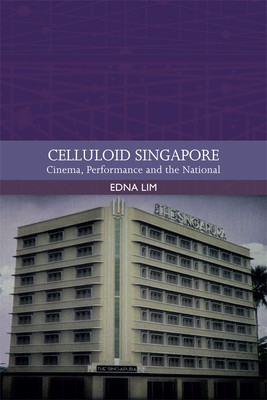
- We will send in 10–14 business days.
- Author: Edna Lim
- Publisher: Edinburgh University Press
- ISBN-10: 1474452256
- ISBN-13: 9781474452250
- Format: 15.5 x 22.9 x 1.8 cm, softcover
- Language: English
- SAVE -10% with code: EXTRA
Reviews
Description
Celluloid Singapore is a ground-breaking study of the three major periods in Singapore's fragmented cinema history, namely the golden age of the 1950s and 60s, the post-studio 1970s, and the revival from the 1990s onwards. Set against the context of Singapore's own trajectory of development, the book poses two central questions: how can the films of each period be considered 'Singapore' films, and how is this cinema specifically national? The book argues that the films of these three periods collectively constitute a national cinema through different performances of Singapore, offering a critical framework for understanding this cinema and its history in relation to the development of the country and the national.
EXTRA 10 % discount with code: EXTRA
The promotion ends in 9d.08:15:35
The discount code is valid when purchasing from 10 €. Discounts do not stack.
- Author: Edna Lim
- Publisher: Edinburgh University Press
- ISBN-10: 1474452256
- ISBN-13: 9781474452250
- Format: 15.5 x 22.9 x 1.8 cm, softcover
- Language: English English
Celluloid Singapore is a ground-breaking study of the three major periods in Singapore's fragmented cinema history, namely the golden age of the 1950s and 60s, the post-studio 1970s, and the revival from the 1990s onwards. Set against the context of Singapore's own trajectory of development, the book poses two central questions: how can the films of each period be considered 'Singapore' films, and how is this cinema specifically national? The book argues that the films of these three periods collectively constitute a national cinema through different performances of Singapore, offering a critical framework for understanding this cinema and its history in relation to the development of the country and the national.


Reviews